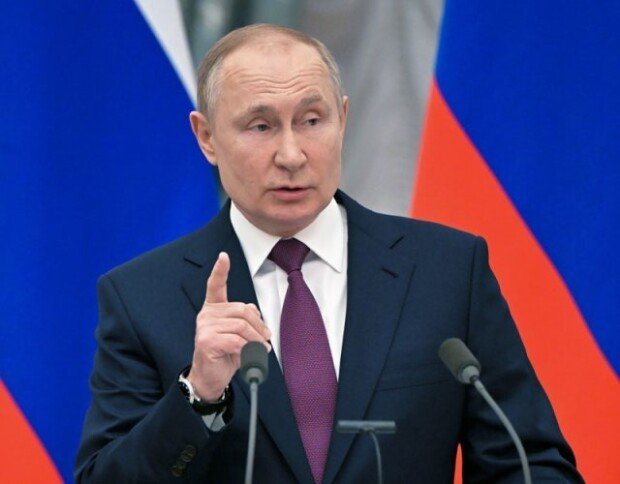Putin is employing ‘grey tactics’
Putin is employing ‘grey tactics’
Posted February. 24, 2022 07:49,
Updated February. 24, 2022 07:49

Russian President Vladimir Putin said that he was not intent on immediately sending military troops to Donbas on Tuesday, just one day after he decided to deploy the Russian troops into eastern Ukraine region. However, North Atlantic Treaty Organization (NATO) confirmed that the Russian troops are stationed in Donbas, the eastern Ukraine region. The New York Times and other media outlets evaluated Putin’s comment as his unique “grey tactics,” which he uses to deliberately obfuscate his intention and authenticity of his statement and thereby intimidate his counterparts.
According to the Russian International News Agency, President Putin announced at the press conference that Russia will provide military assistance to rebels in the eastern Ukrainian regions of Donetsk and Luhansk in accordance with a military cooperation agreement in the event of any conflict. Putin also said that the Russian troops will not be immediately deployed to Donbas and that the troop movement will depend on how the situation evolves.
Military experts evaluate that President Putin’s statement, which is certainly not forthcoming and contrary to the confirmation of the NATO and the EU that the Russian troops have already moved into the Ukrainian border, is the gray tactics to intentionally confuse the Western powers, as well as the “hybrid tactics” with a mixture of military operations, fake news, and political manipulation.
Some say that Putin is pressurized by the possibility of a full-fledged war. Immediately after Putin’s approval of the independence of the self-proclaimed “Donetsk People’s Republic” and “Luhansk People’s Republic,” and decision of military deployment, Russia’s rouble currency depreciated by 3.4% against U.S. dollar, and the MOEX Russia Index also plunged by 10.5%. When the Levada Center, Russia’s polling organization, conducted a survey on whether people support Russia’s invasion and unification of Ukraine, only 25% of the respondents said yes.
Youn-Jong Kim zozo@donga.com




![17년 망명 끝에, 부모 원수 내쫓고 집권[지금, 이 사람]](https://dimg.donga.com/c/138/175/90/1/wps/NEWS/IMAGE/2026/02/18/133376197.3.jpg)

![[속보]美대법원, 트럼프의 국가별 상호관세 ‘위법’ 판결](https://dimg.donga.com/c/138/175/90/1/wps/NEWS/IMAGE/2026/02/21/133392930.1.jpg)
